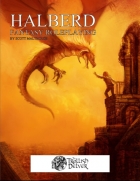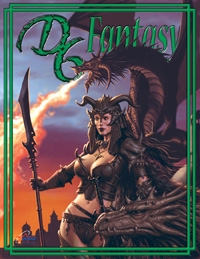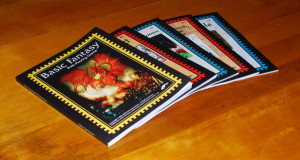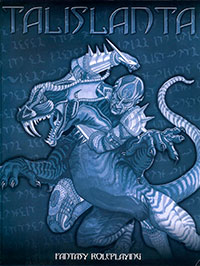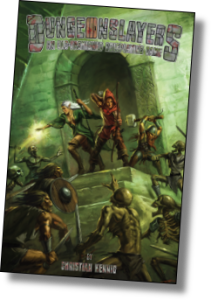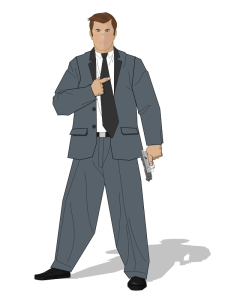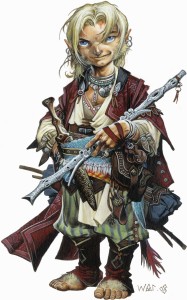 The Pathfinder Bard class is one I am well familiar with. The makers of the Adventure Paths love themselves a good bard NPC and in my earlier 2nd edition game days I used to play the odd bard here and there. The one problem with the bard is they get a little stereotyped most of the time. They pull the lute out or burst into song to support the rest of the party by giving them that +1 edge in combat. The good old morale bonus. but is the Bard truly just a utility class? Let us scratch the surface and find out more.
The Pathfinder Bard class is one I am well familiar with. The makers of the Adventure Paths love themselves a good bard NPC and in my earlier 2nd edition game days I used to play the odd bard here and there. The one problem with the bard is they get a little stereotyped most of the time. They pull the lute out or burst into song to support the rest of the party by giving them that +1 edge in combat. The good old morale bonus. but is the Bard truly just a utility class? Let us scratch the surface and find out more.
First, to break the bard “one size fits all” image, let us look at how they deliver their powers. Most of them are done through the Perform skill. The atypical bard plays stringed instruments or is a singer. Well let us branch out a bit from there. Breaking the stereotype is as easy as choosing different focused skills. For example, under perform you could have acting, mime, dancing, tumbling, comedy, magic shows, and the like. Imagine how that works in combat? Let me give you an example.
I once had a halfling bard (actually he was a duo act with another halfling bard played by another player) and we performed a tumbling act and were known as the “Zucchini Brothers”! I had specialized in a lasso and our performance in the midst of combat was to raise the famed morale bonus as well as provide a distraction to opponents. We did this by tumbling past opponents, lassoing weapons and ducking under legs. It turned our pure utility into a fun event that was colorful in description and purpose. Mind you, our GM did ban those characters as they made a fool of one too many of his NPC’s from memory. Plus they lassoed a +3 battleaxe artifact and made away with it causing some serious problems in game (this was before GM’s were meant to be fans of the players!)
Bards are not one trick ponies. Sure, most players understand the value of a bard in combat but look at all their other abilities. Bards are receptacles of knowledge. They can make Knowledge checks untrained! I am not sure about your games but in mine a lot of the information of the plot can be ferreted out utilizing various Knowledge skills. it makes the game plot a lot more robust and a robust plot is a memorable game in the players’ eyes. Having a bard and finding this information regularly allows for you to be in the hot seat for being able to lead a team of adventurers. it is not really about the strongest, but what and who you know which is all about knowledges.
Other performance abilities include countering sound based spells, inspiring competence in others, fascinating a crowd as well as giving them suggestions. There are also great performances that can be learned (using the expanded core books) that allow for even greater effects from the bard. It seems that the ones the player companions really get hooked on are the ones that give them a bonus in combat. While this is important at times, it is often more important to counter the spell that is about to destroy the party, or have the constabulary of the town suddenly become fascinated with why their horse is infected with ticks while you make away with the town treasury.
There are also the benefits to skill use as you progress in the class. You gain the ability to take 10 on Knowledge checks as well as taking 20 once a day representing your superior all-round knowledge. Then at tenth level you also gain the ability to use any skill untrained, even if training is required! This is a super ability but seems to be often overlooked by many that play a bard.
Of course there is the ability to use spells too, much in the same way as a sorcerer. That is a spontaneous caster. You know only a handful of spells per level but can cast any of them without the need to have them prepared. The spells the Bard gets tend to be a utility nature but they enhance the class features well. Apt attention to the spells you learn are a must as they will greatly enhance your character and their usefulness in every situation.
Bard’s are charismatic and knowledgeable. You may not expect to find one leading men into battle but you should not be surprised to find one acting as a tactician, general or spymaster. They have a perfect blend of social and functional skills that give them the ability to lead people. Followers always want to follow someone that knows what they are talking about and can present that information in a suitable manner. That is the bard through and through.
When you think of the bard, try to ignore that minds image of the fop in the big flouncy hat who strums his lute and sings of brave Sir Robin. Sure they exist but they are performers, not bards. Bards are inquisitive and skilled. They know how to work a crowd and do so to further their own ends. Most Inn’s have performers to draw in a crowd but most of these performers are not bards. They are musicians and singers, not bards. A bard may want to perform for money every now and again, and it is these performances that become truly legendary and memorable in the common persons mind.
Looking at the variant archetypes you can see how ranged the Bard can truly be. There is the Arcane Duelist, the Sandman, the Savage Skald, the Detective and many others throughout the books. These truly show the versatility of this class. it is a class that should not be overlooked in character generation and one that offers a true role-playing experience for the seasoned player. It also offers up a load of fun to a new player who is not yet sure what they want to play. Push them toward the bard because they are so malleable and can suit a style of play once the new player finds it.
Give the Bard a run. I promise you will not be disappointed! Keep rolling 🙂
Mark Knights is 40 year old guy living in a small rural town called Elliott in Tasmania, Australia. I have been role playing since I was 11 years old playing the original versions of Dungeons and Dragons, MERP, Elric, Dragon Warriors and the like amongst other genre games. I played D&D 2nd Edition through the 90′s but I ran Earthdawn for my fantasy setting and loved it as a GM. When 3rd Edition came out for D&D I tried it but found it too heavy on rules. I ignored the 3.5 edition of DnD in favour of Earthdawn (big mistake) as I thought it was just a money spinner. When 4th Edition DnD came on my players and I gave it a red hot go but hated what it had dumbed the game down to be. On a trip to Melbourne to buy some 4E stuff from a hobby store an old mate of mine pointed me at Pathfinder and in a Fantasy setting I have never looked back.



